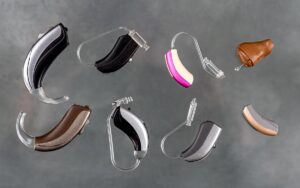Even now you’re missing phone calls. You don’t hear the phone ring sometimes. Other times coping with the garbled voice at the other end is just too much of a hassle.
But it isn’t simply your phone you’re staying away from. You missed last week’s softball game, too. More and more frequently, this sort of thing has been taking place. You can’t help but feel a little… isolated.
The root cause, of course, is your hearing loss. You haven’t really determined how to incorporate your diminishing ability to hear into your day-to-day life, and it’s resulting in something that’s all too common: social isolation. Escaping isolation and getting back to being social can be difficult. But if you want to realize it, here are a number of things you can try.
Acknowledging Your Hearing Loss is The First Step
Sometimes you aren’t quite sure what the cause of your social isolation is when it first begins to occur. So, noticing your hearing loss is an important first step. That may mean making an appointment with a hearing professional, getting fitted for hearing aids, and making sure you keep those hearing aids in working order.
Recognition might also take the form of alerting people in your life about your loss of hearing. In a way, hearing loss is a kind of invisible affliction. Someone who has hearing loss doesn’t have a particular “look”.
So it’s not something anyone will likely recognize just by looking at you. To your people around you, your turn towards isolation could feel anti-social. Talking about your hearing loss can help people around you understand what you’re going through and place your responses in a different context.
Your Hearing Loss Shouldn’t be Kept Secret
Accepting your hearing loss–and informing the people around you about it–is an important first step. Making certain your hearing stays consistent by getting regular hearing assessments is also important. And curbing your first tendencies toward isolation can also help. But there are several more steps you can take to tackle isolation.
Make Your Hearing Aids Visible
There are plenty of people who place a premium on the invisibility of hearing aids: the smaller the better, right? But if people could see your hearing aid they would have a better understanding of the difficulty you are experiencing. Some people even go so far as to embellish their hearing aids with custom art or decorations. You will persuade people to be more considerate when talking with you by making it more apparent that you are hard of hearing.
Get Professional Treatment
Dealing with your tinnitus or hearing loss is going to be a lot more difficult if you aren’t properly treating that hearing condition. What “treatment” looks like could vary wildly depending on the situation. But wearing or properly adjusting hearing aids is often a common factor. And even something that basic can make a real difference in your daily life.
Be Clear About What You Need
It’s never fun to get shouted at. But there are some individuals who assume that’s the best way to communicate with somebody who suffers from hearing impairment. That’s why it’s essential that you advocate for what you need from those around you. Perhaps texting to make plans would be a better option than calling. If everyone can get on the same page, you’re not as likely to feel the need to isolate yourself.
Put People In Your Path
It’s easy to avoid everyone in the age of the internet. That’s the reason why intentionally placing people in your path can help you avoid isolation. Instead of ordering groceries from Amazon, shop at your local supermarket. Gather for a weekly game of cards. Social activities should be arranged on your calendar. There are so many easy ways to run into people such as walking around your neighborhood. In addition to helping you feel less isolated, this will also help you to identify words precisely and continue to process sound cues.
Isolation Can Be Harmful
If you’re separating yourself because of neglected hearing impairment, you’re doing more than limiting your social life. Isolation of this kind has been connected to cognitive decline, depression, worry, and other mental health concerns.
Being realistic about your hearing condition is the best way to keep yourself healthy and happy and to keep your social life going in the right direction, be realistic about your situation, and remain in sync with friends and family.
[blogcta]





